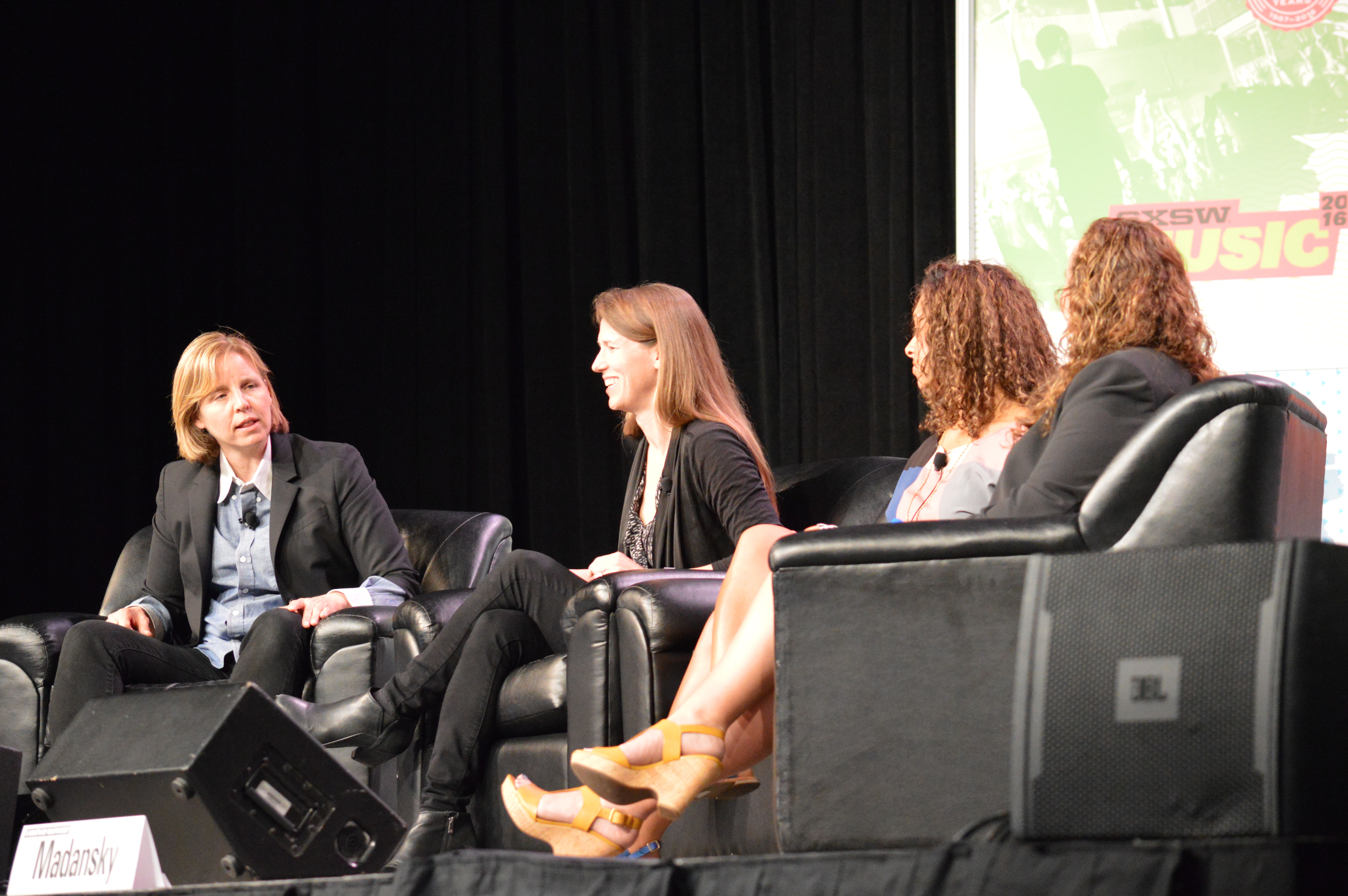One of the many over-arching themes highlighted at this year’s South by Southwest Interactive was gender equality in the workplace, specifically in the tech industry.
At the “Elephant in the Valley” talk on Sunday, a group of female leaders in the tech industry tackled the elephant in the room and put it on full display to highlight the struggles women face and some solutions to overcome them.
When Trae Vassalo had to go to trial as a witness for a gender discrimination case in early 2015 based on alleged sexual harassment she received from the plaintiff, an outpouring of support began flowing in from both friends and women she didn’t know. Oftentimes, those women related similar stories of sexual harassment experiences in the workplace.
It was the stories shared with Vassallo during the trial that inspired her to conduct research along with Michelle Madansky for the “Elephant in the Valley” report released last year.
Of the more than 200 women surveyed from the bay area and Silicon Valley in California, about 60 percent said they have experienced unwanted sexual advances in the workplace. Focusing on five main areas including feedback and promotion; inclusion; unconscious biases; motherhood and harassment and safety, some of the following statistics were uncovered through the research:
- 84 percent have been told they were too aggressive (with half saying they have heard that on multiple occasions
- 66 percent felt excluded from key social or networking opportunities because of their gender
- 88 percent have experienced clients or colleagues address questions to male peers that should be addressed to them
- 75 percent were asked about family life, marital status and children in interviews
- 60 percent of women in tech reported unwanted sexual advances
- 60 percent of women who reported sexual harassment were dissatisfied with the course of action
Vassallo said reliving her experience with sexual harassment at the Ellen Pao trial was “horrible,” but after seeing the numbers revealed in the report, she thought, “’This is a systematic problem? Oh, I’m going to work that much harder to change this.’”
The talk featured herself, her fellow researcher Michele Madansky, recently appointed Chief Technology Officer Megan Smith of President Barack Obama’s administration and CEO and co-founder of CODE2040, Laura Weidman Powers.
From a young age, females are underrepresented, particularly in the media.
“One out of every four characters on TV are female,” Smith said, moving on to note that for every 15 men in computer science, one is female.
The panel stressed the importance of pushing women from a young age to move outside of their comfort zones in education and to instill the confidence in them to advance in education.
Smith said during a conversation with a parent once, the mother said her child asked, “’Mom, am I more of a Hispanic and not good at school, or am I more of an Asian and not good at school?’ That was a real question.”
She said that question highlights the need to break apart the “tribes” children gather into and empower everyone with the tools to succeed in a tech-centric society.
For women of color, representation on all levels is problematic. A unique struggle minorities face in the workplace is that they either feel they are given too much attention or that they are invisible.
For example, women of color generally feel they are not invited to workplace-related gatherings and they feel they are not included in projects. Women of color also said that, when their managers are white men, they don’t feel they receive proper feedback, said Powers. CODE2040, the non-profit Powers founded, creates pathways to success in the innovation economy for black people and Latinos.
Generally speaking, the “pipeline” of women in the tech industry frequently drop out, leaving the field less representative of women.
Smith calls this “death by 1,000 cuts.”
She said society has moved away from overt bias, “but we have made no progress in the past 30 years on implicit bias and institutional bias.”
Another problem women face is referred to the panelist’s as the “Goldilocks syndrome” – women are either seen as too quiet or too aggressive.
At a separate panel geared toward women entitled, “How to Ask for Money: Know Your Worth, Get Paid,” the panelists noted that it was that aggressiveness that set men apart in terms of getting hired and getting the pay they want.
And wage inequality shows. Many have heard the 2014 statistic which states that in 2014, full-time working women made 79 percent of what men were paid for equal work.
It’s an inequality that Powers hopes will resolve with time.
“I would hope that in the year 2040 a panel like this doesn’t need to exist,” Powers said.


